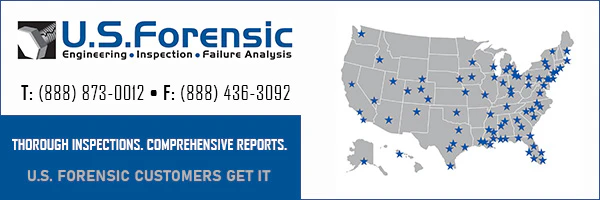Insurance Commissioner Cannot Force State Farm to Pay Refunds for Overcharges, San Diego Court Says
Wednesday, November 3rd, 2021 Source: Consumer WatchdogThe Insurance Commissioner cannot force insurance companies to repay consumers when they charge excessive rates, the state Court of Appeal in San Diego ruled late Friday afternoon.
Rejecting the express language, purposes and intent of voter-approved Proposition 103 and two previous decisions by the California Supreme Court the court held that State Farm will not have to pay over $100 million in refunds plus interest to Californians who were overcharged by the company for its homeowners, condo and renters coverage.
Also at stake as a result of this decision is an estimated $3.5 billion in overcharges that insurance companies imposed on California motorists alone during the pandemic in 2020 that have not been repaid. The vast majority of insurers have failed to refund premiums that were collected based on rates that were set before the pandemic closed down the state’s economy and left millions of cars in their driveways. Insurance Commissioner Ricardo Lara has repeatedly notified insurers that their rates and premiums were excessive and they must refund the overcharges.
The court also held that when determining whether to approve a request by State Farm General, a wholly-owned subsidiary of State Farm Mutual, to raise its rates, the Insurance Commissioner cannot take into account the subsidiary’s proportionate share of the investment income the company earns when it invests the funds of all its subsidiaries, including State Farm General. The ruling creates a loophole in California’s comprehensive regulation of insurance rates—a loophole only available to large, multi-state companies that set up a separate California-only subsidiary like State Farm General, whose books the parent can cook to raise the rates to California consumers. Under the ruling, State Farm’s customers will pay $100 million more for homeowners insurance every year from now on.
"Californians passed Proposition 103 to protect themselves against arbitrary rates and discriminatory practices by requiring insurance companies to keep rates and premiums fair at all times or else be held accountable by the Insurance Commissioner or in the courts," said Harvey Rosenfield, the author of Proposition 103. "The Court of Appeal’s decision has stripped the Insurance Commissioner of the powers the voters gave him to protect Californians against excessive rates. Consumer Watchdog will ask that it be overturned by the California Supreme Court."
Decision Undermines Critical Proposition 103’s Protections Against Insurance Company Profiteering
Under Proposition 103, enacted by California voters in 1988, insurance companies are barred from charging excessive auto, home and business rates. Companies are required to apply for and justify any rate changes before they take effect under a formula that limits their profits and expenses to fair levels. The law also requires companies to maintain existing rates at fair levels at all times. The measure authorizes consumers to challenge illegal rates and other insurance practices.
In 2014, State Farm General applied for a 6.4% overall rate hike for its home, condo and renter insurance. Consumer Watchdog’s experts analyzed the request, determined that it appeared excessive and asked the Insurance Commissioner to convene a public hearing. In November 2016, after a year-long public inquiry, Insurance Commissioner Dave Jones determined that the rate increase was unjustified and ordered the company to reduce its home insurance rates going forward by about $77 million per year. The Commissioner also concluded that the company had been overcharging its existing customers since July 2015 and ordered State Farm to refund over $100 million to California policyholders, with interest.
State Farm then filed four separate lawsuits in San Diego Superior Court, seeking to overturn the Commissioner’s decision on numerous grounds, including that the voter-enacted requirement that an insurance company open its books and justify its rates in a public hearing infringed on its constitutional rights.
The court decision addresses two of State Farm’s contentions.
Refund authority: State Farm argued that the Insurance Commissioner has no authority to force an insurance company to refund overcharges.
Consumer Watchdog and the Commissioner pointed out that California voters changed the law to place insurance companies doing business in California on notice that they must always maintain fair rates. Further, the California Supreme Court has twice unanimously upheld the authority of the Commissioner to order rate refunds and has stated that the voters gave the Commissioner full authority to carry out Proposition 103’s protections.
The Court of Appeal rejected these arguments. It imported into Proposition 103 a "rule against retroactive rates" that effectively repeals the voters’ explicit directions and bars the Commissioner from requiring refunds. Consumer Watchdog said that the court’s decision would create incentives for insurance companies to boost insurance rates unlawfully. Investment Income: Insurance companies make a large portion of their profits by investing the premiums consumers pay, and the regulations that govern insurance rates under Proposition 103 look at the insurer’s entire investment income. The Commissioner and Consumer Watchdog argued that the formula protects Californians against attempts by an insurance company to hide its investment income, that the California Supreme Court had previously upheld the Commissioner’s authority to do so, and that State Farm was not entitled to a special exemption from that regulation.
But the Court of Appeal ruled that Proposition 103’s requirement that the Commissioner consider whether insurance rates "mathematically reflect the insurance company’s investment income" had to be read to allow State Farm Mutual (which had an after-tax profit of $4.6 billion in 2014) to create a wholly-owned subsidiary in California, stash its least profitable investments in that subsidiary, and ignore the California business’ proportionate share of the portfolio profits, a bookkeeping trick that ignores the actual economics of the business. State Farm insured 20% of the homeowners market at the time.
Court Says Voters Intended to Protect Insurance Companies
Consumer Watchdog said that the court’s decision adopted the insurance industry’s argument that the voters intended Proposition 103 to protect insurance companies. The court asserted that Proposition 103’s "focus" was "on fairness to both consumers and insurers," and said, "We also are not persuaded by CW’s argument that ’[f]orcing consumers to pay excessive rates would frustrate the purpose of protecting consumers from arbitrary insurance rates.’" The court also rejected the argument made by Consumer Watchdog and the Commissioner that allowing companies like State Farm to evade the rules on investment income would encourage them to create artificial subsidiaries for the purpose of rate manipulation. The court asserted: "[Consumer Watchdog and the Commissioner] … do not establish that limiting rate manipulation was a purpose of Proposition 103."
Consumer Watchdog objected strongly to the court’s interpretation of Proposition 103: "The voters did not pass Proposition 103 to protect the insurance companies. They have enough money and lawyers to protect themselves. The text of the law makes clear its sole focus is to protect consumers against profiteering, discrimination, reckless insurance industry behavior and anything else that might harm consumers. The insurance industry would not have spent $63 million trying unsuccessfully to defeat Proposition 103 at the ballot box, and countless hundreds of millions more in legal challenges to the law since it passed, if the measure protected the industry’s right to overcharge Californians, as the court suggests."
Background on Proposition 103
State Farm’s legal challenges are the latest in a three-decades long campaign by insurance companies to reverse the results of the 1988 election through litigation.
Proposition 103 was approved by California voters in November 1988 after a David-versus-Goliath battle at the ballot box in which the insurance industry spent a record $63 million, and sponsored three competing initiatives, in an attempt to defeat the grassroots backed proposal.
The measure:
• Mandated an immediate 20% rate rollback and refund;
• Regulates auto, home and business insurance rates by requiring public disclosure and prior approval of rate changes;
• Requires that auto premiums must be based primarily on a motorist’s driving safety record rather than zip code;
• Applies California’s consumer protection, civil rights and antitrust laws to the insurance industry;
• Authorizes consumers to challenge insurance company violations of the law through civil suits or an administrative hearings process; and,
• Made the insurance commissioner an elected position.
Insurance companies refunded over $1.43 billion to consumers after voters passed Proposition 103. The Consumer Federation of America has declared Prop 103 the most pro-consumer insurance law in the nation, estimating it has saved California motorists alone over $154 billion since it took effect in 1989. Insurance policyholders have saved over $3.43 billion since 2003 alone as a result of Consumer Watchdog’s challenges to excessive rates.





